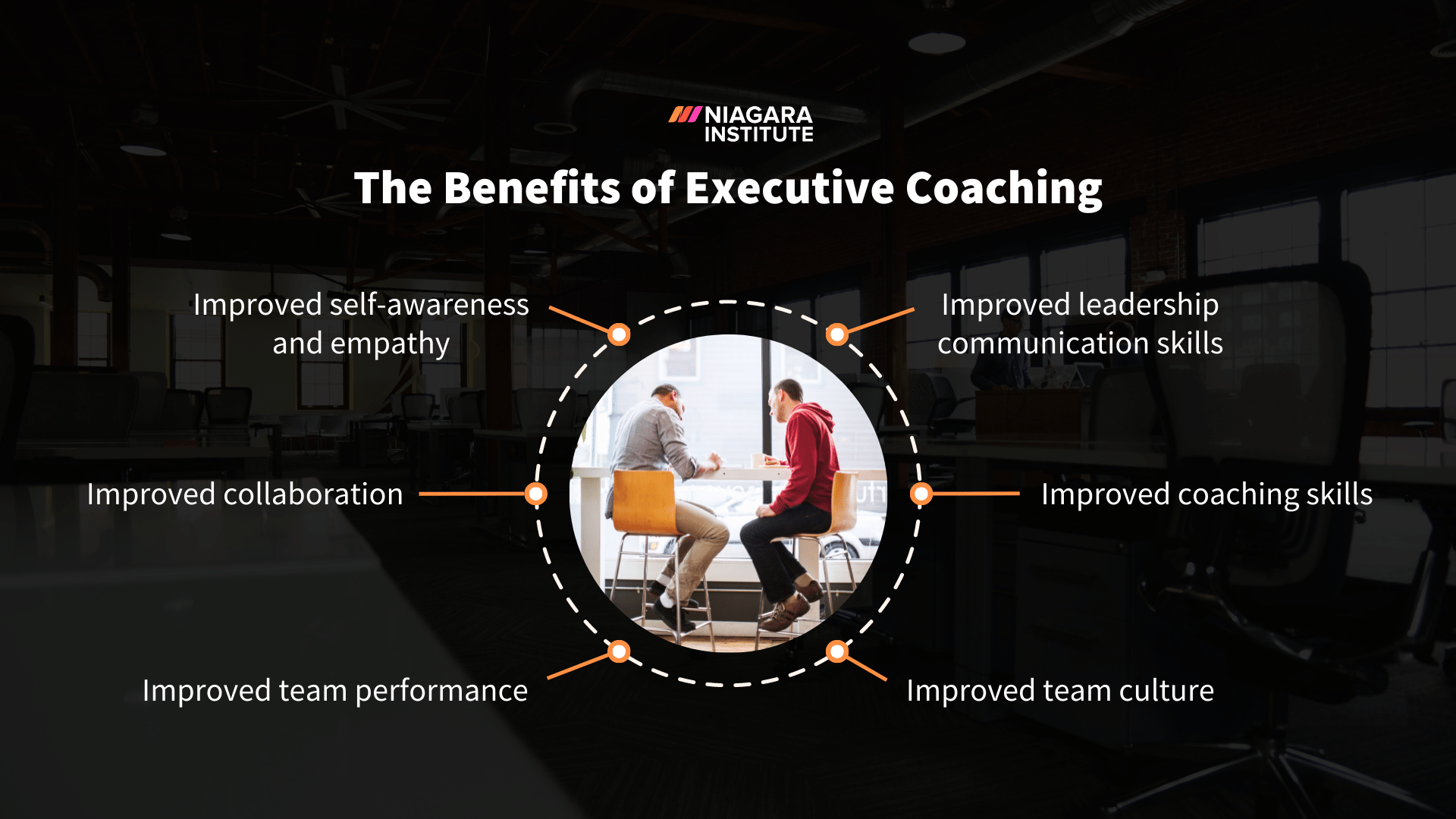5 min read
What Is Leadership Development Coaching? (+Examples)
What do you do when you have a learning objective or development goal that no training program curriculum matches up with? What if you have a leader...

When it comes to professional development, there are many options. But few are as genuinely personalized as executive coaching. When done well, executive coaching provides those in leadership the unique support they need to achieve their goals, capitalize on opportunities, and overcome their most pressing challenges.
In the following article, we’ve answered some of the most frequently asked questions regarding executive coaching so that you can decide if it’s truly the right option for you.
As the name suggests, executive coaching is when a qualified, professional coach provides personalized support to a leader in order to support their professional development. Once the goals of the coaching engagement are thoroughly defined and a timeline is established, a coach and the leader will meet one-on-one on an ongoing basis, either in person or virtually.
The goal of an executive coach is to help leaders reach their professional goals, overcome ongoing struggles, and ultimately set them up for success in the future. So, what exactly will an executive coach do to make this happen? Executive coaches will:
Executive coaching typically lasts between three and twelve months. The length of the engagement will be decided based on your professional goals, the complexity of your needs, your budget, and your availability.
Professional executive coaching can be hugely beneficial to leaders, and in turn, their employees. In fact, according to the Association of Talent Development, those benefits can include:

The cost of coaching for executives will depend on several factors, such as your position and level of seniority, how experienced and qualified the coach is, and the length of the engagement. However, to give you an idea of the cost of executive coaching, Niagara Institute’s coaching packages for senior leaders range from $4,500 for three months to $14,000 for twelve months.
In order to get the most out of your investment in executive coaching, selecting the coach who best matches your unique needs is critical. To help you do so, we recommend considering the following factors in your search for an executive coach:
One of the first things to look for in an executive coach is their education, training, and accreditations. For example, many of the coaches on Niagara Institute’s roster are accredited by the International Coaching Federation, which is considered “the gold standard in professional coaching.” That’s because this accreditation confirms that a coach has met specific standards and that they agree to adhere to strict ethical guidelines, both of which are essential to a successful executive coaching engagement.
In addition to the accreditations and training a coach has received, you should consider what real-world experience they have. Have they personally held a position in senior leadership? Have they worked in your industry or department before? Have they worked with clients in the past with similar goals and needs? If they have the experience you’re looking for, this will make it that much easier for them to understand you and make the coaching they provide relevant to your day-to-day life.
Every professional coach will have a slightly different approach depending on your goals, challenges, and experience. So, you want to ask about this as you select a coach to ensure it aligns with your expectations and needs.
When selecting an executive coach, do not underestimate the importance of finding someone who is a personality match. So, before signing anything, ask to meet briefly with the coach(es) you are considering in order to get a feel for each other. You will know you’ve found the right match when the conversation flows freely and you feel like they would provide a safe and trusting safe where you can be honest and candid.

5 min read
What do you do when you have a learning objective or development goal that no training program curriculum matches up with? What if you have a leader...

4 min read
More than likely you’ve heard terms like executive coach, leadership coach, mentor, or one to one coaching, at some point in your career. But what do...

3 min read
Whether you’ve been tasked with creating an individual development plan by your boss or have taken it upon yourself to create one as part of your...